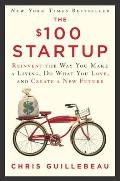
Have you ever met a barista with a college degree? What about one with a master's degree? Spend time in Portland, or likely any other major city in North America, and this experience is not uncommon. Between those who are completely unemployed, those who are underemployed, and those who have just gone off the grid, there's no shortage of people who aren't working at the jobs for which they trained.
Last year in Portland, an opening for a receptionist position that paid $14 an hour with no benefits attracted more than 300 people who showed up for interviews, many of them college graduates. As you'd expect, the vast majority of these applicants were qualified or overqualified, but at the end of the process, only one could win the "prize" of moving off the unemployment lists to a menial job.
What's the real problem here?
It used to be that when we met someone with advanced education who wasn't working in their chosen field, we would think they must have fallen on hard times. Or perhaps we even thought, "Something is wrong with them." But I would suggest that when hundreds of overqualified people apply for a receptionist job with no benefits, that's not the whole story.
The whole story is that something is wrong with the whole system, and the answer for people who are out of work isn't just "Try harder." I don't think they should focus on polishing their resumes or rehearsing their interview answers.
It's not just the banks, the politicians, the 1%, or the economy that have failed us. We've failed ourselves by believing a lie: If we just work hard enough and play by the rules, everything will be okay. Yet for many people, that's not how it's turning out. Hundreds of thousands of students are going into debt, spending years of their lives to train for jobs that don't exist.
Thankfully, there's another way. This escape plan isn't found through manifesting money or pursuing someone else's business opportunity. Instead, it's found through helping people, creating true value, and creating a model of getting paid for doing what you love.
The way out of the recession is not about "being an entrepreneur," it's about creating something of value that they share with the world at a fair price. Essentially, it's about creating your own security instead of finding it somewhere else.
÷ ÷ ÷
Three years ago, Michael Hanna went into work at his job for a downtown Portland media company, just as he had done for years. That day, however, he left work early ? unexpectedly sent home by the HR department, with box in hand and a stack of unemployment forms to fill out.
After recovering from the shock, Michael dutifully pounded the pavement, looking for work but without success. Michael was a great worker with plenty of experience, but he wasn't the only one job-hunting in difficult circumstances.
Michael had a friend with a furniture store who offered him an unwanted truckload of mattresses. "That's random," Michael thought at first. But nothing else was happening, so Michael bought the mattresses. He then found a vacant car lot that he could rent on the cheap from a dealership. He didn't know much about mattresses, but Michael focused on service: creating a no-pressure environment where customers felt welcomed and families could visit.
In 2012, Mattress Lot is now a booming, $1 million a year business, delivering mattresses by bicycle all over the city from their Northeast location. "It wasn't what I expected," Michael told me, "But getting laid off was the best thing that ever happened to me."
Across town, Sarah Young was opening up Happy Knits, a yarn store. Sarah also didn't know much about running a business, but she focused on giving people what they wanted. "I wasn't an entrepreneur," she said, "but I was a shopper. I knew what I wanted and it didn't exist, so I made it."
I asked Michael and Sarah why they both decided to open retail businesses at the height of the recession.
What about the economy ? weren't you worried?
"I didn't focus on the economy," Sarah said. "I focused on opportunity."
Wasn't it risky?
"It was less risky than continuing to trust my well-being to someone else," Michael said.
How did you know it would work?
"I didn't know for sure," they both said. But in the pattern that many other unexpected entrepreneurs have followed, Michael and Sarah focused on keeping costs low and delivering a quality service.
This new model doesn't take a lot of money, and it doesn't take specialized skills. You don't need investors, bank loans, or an MBA. You don't even need much of a business plan besides "Make something valuable and deposit money."
When it comes to employment and opportunity, there are two competing stories in the U.S. today. One story is of struggle and austerity, of struggling to compete in a changing system. Politicians will talk about "standing up to China" and returning manufacturing dominance to the U.S. Personal finance experts, most of them millionaires, will lecture people on how to save money by not buying a latte.
Another story is of taking matters into your own hands and opting out of the whole system. This is a story of change and hopefulness, and the message is: security is up to you.
Michael, Sarah, and many others found their own security by choosing the path less traveled. They pursued their own freedom by creating something valuable and sharing it with the world. Three years since starting up and filling their shops with mattresses and yarn, neither of them could imagine doing anything else.